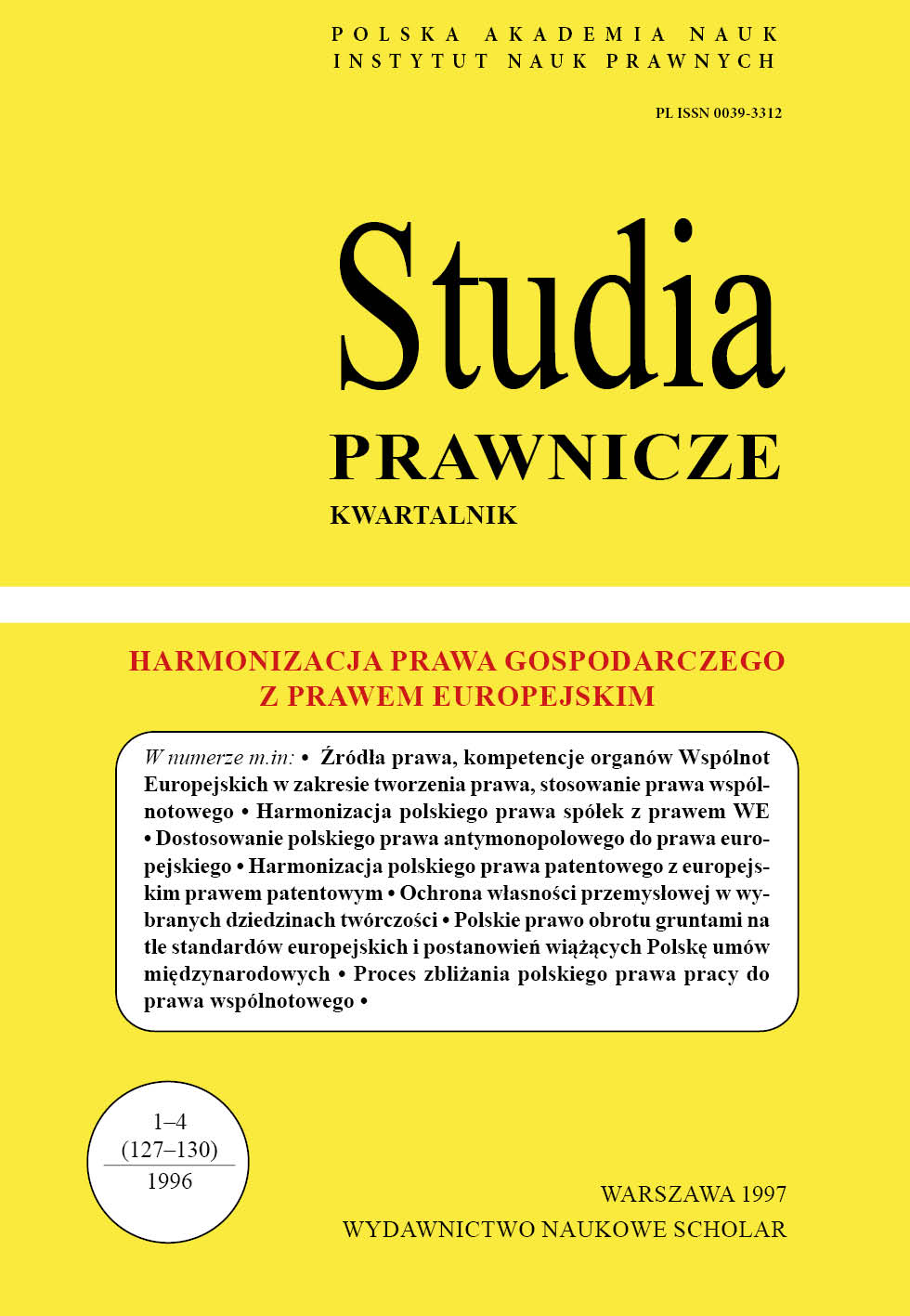Źródła prawa, kompetencje organów Wspólnot Europejskich w zakresie tworzenia prawa, stosowanie prawa wspólnotowego
Sources of law, competences of the bodies of the European Communities in making law, application of Community law
Author(s): Andrzej WasilkowskiSubject(s): Law, Constitution, Jurisprudence
Published by: Instytut Nauk Prawnych PAN
Keywords: European Communities law; administration of law; sources of law; legislation
Summary/Abstract: The creation of international structures is not, according to the principle [of subsidiarity as formulated in Article 5 of the Treaty establishing the European Community] an end in itself, but must be conditioned in every part, including law-making, by the specific interests of the Member States and their societies. From such a point of view, international bodies are drawn as instruments for the achievement by a collective of states of those objectives which they share and which they could not achieve on their own. Derivative (secondary) law is consequently a tool for achieving these objectives and only within these, accepted limits, can or should it develop. [The Europe Agreement] speaks of ensuring the conformity of Polish law (in the areas listed therein) with Community law, but does not specify the methods of achieving such conformity. It must therefore be assumed that the Polish side remains free in its choice of methods. This is because it is about the final outcome, not the paths leading to it. Depending on the needs, different solutions are therefore possible, and thus different degrees of approximation of Polish law to Community law.
Journal: Studia Prawnicze
- Issue Year: 1996
- Issue No: 1-4
- Page Range: 7-29
- Page Count: 23
- Language: Polish

